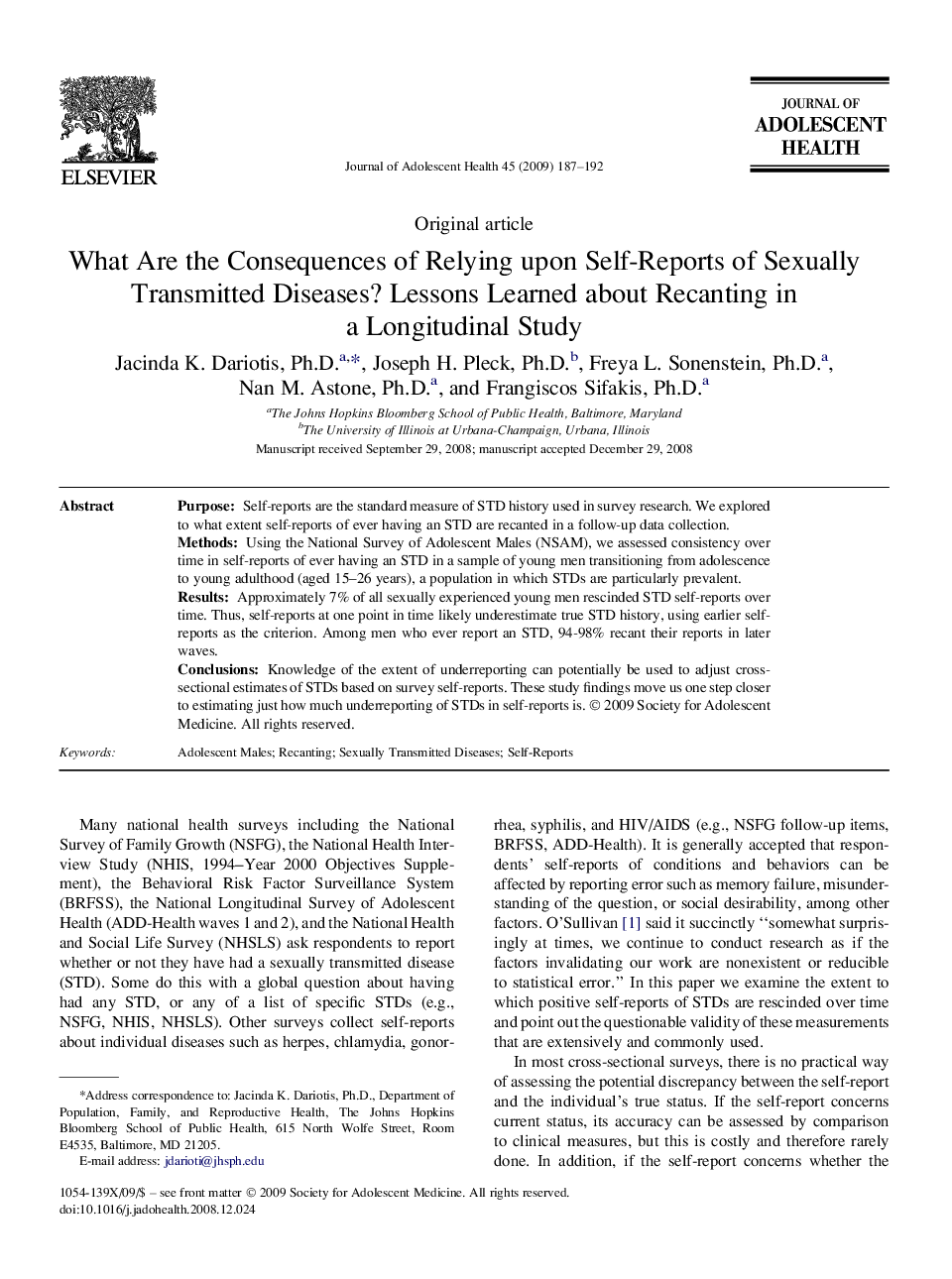| کد مقاله | کد نشریه | سال انتشار | مقاله انگلیسی | نسخه تمام متن |
|---|---|---|---|---|
| 1080893 | 950567 | 2009 | 6 صفحه PDF | دانلود رایگان |

PurposeSelf-reports are the standard measure of STD history used in survey research. We explored to what extent self-reports of ever having an STD are recanted in a follow-up data collection.MethodsUsing the National Survey of Adolescent Males (NSAM), we assessed consistency over time in self-reports of ever having an STD in a sample of young men transitioning from adolescence to young adulthood (aged 15–26 years), a population in which STDs are particularly prevalent.ResultsApproximately 7% of all sexually experienced young men rescinded STD self-reports over time. Thus, self-reports at one point in time likely underestimate true STD history, using earlier self-reports as the criterion. Among men who ever report an STD, 94-98% recant their reports in later waves.ConclusionsKnowledge of the extent of underreporting can potentially be used to adjust cross-sectional estimates of STDs based on survey self-reports. These study findings move us one step closer to estimating just how much underreporting of STDs in self-reports is.
Journal: Journal of Adolescent Health - Volume 45, Issue 2, August 2009, Pages 187–192